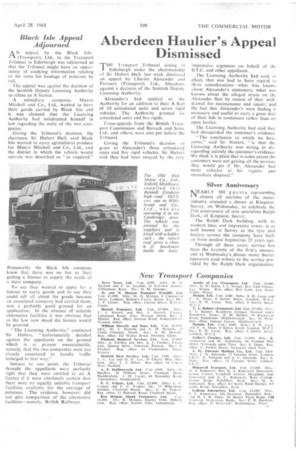Black Isle Appeal Adjourned
Page 41

If you've noticed an error in this article please click here to report it so we can fix it.
AN appeal by the Black Isle (Transport), Ltd., to the Transport Tribunal in Edinburgh was adjourned so that the Tribunal might have an opportunity of studying information relating to the rates for haulage of potatoes by rail.
The appeal was against the decision of the Scottish Deputy Licensing Authority to refuse an A licence.
A subsidiary company, Munro Mitchell and Co., Ltd., wanted to have their goods carried by Black Isle and it was claimed that the Licensing Authority had misdirected himself in Law regarding the unity of the two companies.
Giving the Tribunal's decision, the chairman, Sir Hubert Hull, said Black Isle wanted to carry agricultural produce for Munro Mitchell and Co., Ltd., and the. district in which the vehicle would operate was described as "as required."
Presumably the Black isle company knew that there was no bar to their getting a licence to supply the needs of a sister company.
To say they wanted to apply for a licence to carry goods and to say they could tell all about the goods because an associated company had carried them, was a perfectly good ground for an application. In the absence of suitable alternative facilities it was obvious that as the law now stood the licence would be granted.
"The Licensing Authority," continued Sir Hubert, " unfortunately decided against the appellants on the ground which is at present unsustainable, namely, that the two companies were too closely associated to handle traffic indulged in that way."
Subject to one point, the Tribunal thought the appellants were perfectly right that they were entitled to an A licence if it were absolutely certain that there were no equally suitable transport facilities available for the carriage of potatoes. The evidence, however, did not give eomparison of the alternative facilities—namely, British Railways,
























































































































